Phyllis Edgerly Ring's Blog, page 22
October 29, 2015
Deciding the life we live

Photo: Kathy Gilman
GLEANINGS FOUND HERE AND THERE:
Justice is what love looks like in public.
~ Dr. Cornel West
When I hear somebody sigh, “Life is hard,” I am always tempted to ask, “Compared to what?”

Photo: Karen Olin Darling
~ Sydney J. Harris
Best work we can do on ourselves is to withdraw the projection of our shadow onto others.
~ Carl Jung
Doubt is a pain too lonely to know that faith is his twin brother.
~ Kahlil Gibran
The doors we open and close each day decide the lives we live.

Photo: Nelson Ashberger
~ Flora Whittemore
Wisdom is instinct in body, emotion in heart, knowledge in mind and intuition in spirit.
~ Ian Lawton
A great many people think they are thinking when they are merely rearranging their prejudices.
~ William James


October 25, 2015
Possibility arrives anew in each moment

Photo: Nelson Ashberger
With the return of each day’s light comes an invitation to investigate, throughout the span of that day, rather than imitate the past.
Do I accept it, and apply myself to what it invites?
It arrives in a world of imperfection, one that can easily draw negative reactions from my lower nature, which must find its way in that world.
Yet I’ve surely had opportunity to learn that dwelling on imperfections, berating myself or others for them, serves only to increase my perception of them. It’s a circle of suffering I draw for myself. It saps my time, energy, and attention (those aspects of life over which I have choice) when I could instead offer them for something that is always calling, if softly, at times: the building of the good that I’m invited into each day.

Photo: https://www.etsy.com/shop/DKirkupDesigns
In responding to that call, I discover how very much there is to become aware of and relinquish—how much preoccupation with negativity can surround my life and fill my thoughts and absorb my personal resources.
This, in many lives, is the debilitating presence of blind imitation of the past, including the kind of thinking that was born in earlier, fearful experiences and has led to attitudes, behaviors, assumptions, and beliefs that have no basis in reality—nor, indeed, anywhere near it.
My encounter with imperfection extends an invitation, too—one urging me to recognize and accept how much I don’t know, or can’t change, yet I can always discover the limitless possibilities of love in the most essential kind of response I’ve been designed and equipped to make. Rather than exercising my survival-driven instinctual reaction to fight imperfection, or try to escape it, I can turn toward an innate, indwelling response—the possibility of it—that is better-aligned with the purpose for which I’ve been created.

Courtesy: http://rickdaddario.com/
As it invites me into the freedom of not fighting any one or any thing (including myself), it also reminds that every human interaction (including with myself) is either an act of giving or an act of receiving. By asking questions that encompass both giving and receiving, my sensitivity to my own true needs and those of others is increased daily.
Each part of this questioning is equally important, because giving depends on someone willing and capable of receiving from me, and receiving depends on someone willing and capable of giving to me.
The following two service questions have been conceived as a way to help us focus on and clarify reality for ourselves in the course of the countless decisions we are called upon to make each day.
These junctures of possibility arrive moment by moment, and as I seek to draw away from blind imitation of the past toward the true investigation of my own and others’ deepest reality, I return to these questions again and again:
At this moment in time, what is the act of service I am capable of giving that the other person is capable of receiving?
At this moment in time, what is the act of service I am capable of receiving that the other person is capable of giving?
Adapted from With Thine Own Eyes: Why Imitate the Past When We Can Investigate Reality?
Find more about the book at: http://www.amazon.com/Thine-Own-Eyes-Imitate-Investigate-ebook/dp/B00I1JPC7I/ref=asap_bc?ie=UTF8


October 21, 2015
Coming into view, arriving soon: The Munich Girl
The Munich Girl –
A Novel of the Legacies That Outlast War
Anna Dahlberg grew up eating dinner under her father’s war-trophy portrait of Eva Braun.
Fifty years after the war, she discovers what he never did—that her mother and Hitler’s mistress were friends.

Eva Braun’s diary, courtesy The National Archives.
The secret surfaces with a mysterious monogrammed handkerchief, and a man, Hannes Ritter, whose Third Reich family history is entwined with Anna’s.
Plunged into the world of the “ordinary” Munich girl who was her mother’s confidante–and a tyrant’s lover–Anna finds her every belief about right and wrong challenged.
With Hannes’s help, she retraces the lives of two women who met as teenagers, shared a friendship that spanned 16 years (the length of time Eva Braun was Hitler’s mistress), but never knew that the men they loved had opposing ambitions.
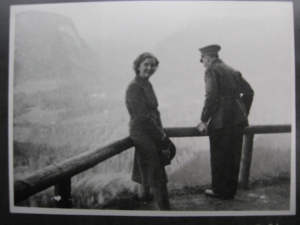 Eva’s story reveals that she never joined the Nazi party, had Jewish friends, and was credited at the Nuremberg Trials with saving 35,000 Allied lives. One of those was the Resistance fighter that Anna’s mother loved, who was involved in a plot to kill Hitler.
Eva’s story reveals that she never joined the Nazi party, had Jewish friends, and was credited at the Nuremberg Trials with saving 35,000 Allied lives. One of those was the Resistance fighter that Anna’s mother loved, who was involved in a plot to kill Hitler.
As it draws her into the past, Anna’s journey leads her deep into long-buried secrets and unknown reaches of her own heart. 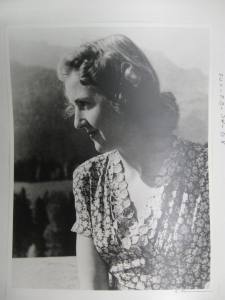
It is the path that will help her understand the enduring power of love in the legacies that always outlast war.
To receive information about The Munich Girl and events related to its upcoming release, email: info@phyllisring.com


October 18, 2015
Look up to see the Beauty
GLEANINGS FOUND HERE AND THERE:
Far away in the sunshine are my highest aspirations.
I may not reach them, but I can look up and see their beauty, believe in them, and try to follow where they lead.
~ Louisa May Alcott
The sky is the daily bread of the eyes.
~ Ralph Waldo Emerson
The goal is to recognize yourself as the subject.
Then you get put right side up, and you directly live your life as the totality of being.
… Let the whole world break your heart (open).
~ Gangaji


October 15, 2015
Reading between history’s lines
 I recently unearthed a little treasure from family history that’s supremely timely as I wrap up European scenes in my newest novel, The Munich Girl.
I recently unearthed a little treasure from family history that’s supremely timely as I wrap up European scenes in my newest novel, The Munich Girl.
Four small pages of stationery with my mother’s initials at the top are filled with her distinctive British handwriting on all eight sides. A prolific writer, she gathered these snapshot recollections from years when my parents and then pre-schooler sister lived in post-war France and Germany. God bless her. We think about doing such things so often. Now I’m a real beneficiary because she actually did.
“I decided then that you’d probably grow up to be a tactful, diplomatic person,” she describes of the time when, on her very first airplane flight (from London to Bordeaux, France), my sister, then 4, made polite conversation with the two travelers seated across from her and my mother. My mother describes them as “dressed in the full regalia of those who live in Arab countries.”
Among many vocations, my sister was eventually a staff member for three Congressmen and a U.S. Senator, which afforded numberless opportunities to practice both tact and diplomacy. Our mother had a knack for being prophetic that way.

Photo: Kathy Gilman
She recalls “Tu et You,” my parents’ nickname for the rustic French farmhouse where they were billeted as a young couple. “Toilet was directly off — almost still within — the kitchen,” she writes. “The septic tank, it turns out, was directly under the toilet,” as she had occasion to discover when said toilet malfunctioned and the horse-drawn “Vidange Rapide” (“quick drain”) cart came to the rescue. The operator, she records, consumed a sandwich during the repair, all while periodically jiggling the leaky hose he was wielding. His verdict: “Too much tissue.” Apparently none was the preferred quantity.
Each weekday, from the time my sister turned 5, two military police would arrive at the house shortly before dawn to escort her to school via military staff car, a ride of an hour each way. I cannot imagine what this meant for my mother’s peace of mind. It explains a lot about why my sister’s probably one of the most unflappable travelers I know.
On some of those schooldays, my mother and a very-pregnant neighbor, also a military spouse, went to the nearby market town to do laundry. My mother handled the French-speaking, at which she was quite adept, and the neighbor provided the transportation. My mother was tasked with planning their route, which she did very carefully, as the neighbor’s Studebaker had no reverse gear.
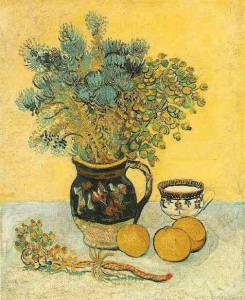 On one of those days, Henri the gardener decided to “repair” the coal stove and inadvertently dislodged the stove pipe, which collapsed and blanketed everything in sight, including Henri, in soot. My mother notes that he did not stick around to help clean it up.
On one of those days, Henri the gardener decided to “repair” the coal stove and inadvertently dislodged the stove pipe, which collapsed and blanketed everything in sight, including Henri, in soot. My mother notes that he did not stick around to help clean it up.
On New Year’s Eve at the luxurious Grand Hotel in Bordeaux, the elegant doors to the rooms for “hommes” (men) and “femmes” (women) opened into the same restroom. “And the very fancy chicken entrée still had most of its insides,” my mother notes. As she so often did, she came home afterward and sat on my sister’s bed and shared the evening’s details, including descriptions of the most fashionably dressed women.
Next stop in their tour of duty was Frankfurt, Germany, where most military families had maids, in part because so many postwar Germans needed the work. Ria, the first, asserted her influence with furniture: “Every weekend, your father would rearrange the gigantic German furniture, including piano, and every Monday, Ria would put it all back. ‘Nein, nein — das ist besser’.”
Harriette favored “snail and Crisco sandwiches,” and Olga, who had been a Russian prisoner of war (and suffered who knows what atrocities) hadn’t seen a flush toilet before and thought it a fine device for cleaning vegetables, my mother was horrified to discover one day.
My father, who tended to be the family storyteller, regaled us with stories like these for years and no matter how many times we heard them, they sent tears of mirth rolling down our cheeks. 
My mother’s dry summaries, rendered with British wit, certainly did too. Yet there’s something that speaks volumes between their terse lines. My father, more often than not, came home to hear about these experiences, while my mother, with a battlefront whose local dialect kept changing, actually lived them.
Humor was obviously a very big part of how she managed that. And while she may have had to dig deep, some days, to find that humor, the effort itself is still a kind of healing balm, even all these years later.
Adapted from Life at First Sight: Finding the Divine in the Details.


October 11, 2015
Perceptions, beliefs, truth – oh, my!

Image: https://www.etsy.com/shop/DKirkupDesigns
“Love and appreciation are identical vibrations,” a passage from Abraham-Hicks reminds.
“Appreciation is the vibration of alignment with who-you-are … When you tell the story of how you want your life to be, you will come closer and closer to the vicinity of appreciation, and when you reach it, it will pull you toward all things that you consider to be good in a very powerful way.”
That certainly leads me to breathe more deeply, and say, “Yes.”
Then, of course, there’s what I “consider to be good”, and why it is that I do — and how open I am about the possibility of that expanding and changing.
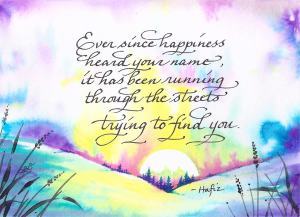
Courtesy: http://www.nothingshortofjoy.com/
This really is a culture of learning I’m invited into, where life continues to show me each day how important the presence of contrast is for observing, discovering, recognizing, and learning. We are not able to see without it, either in the outer world or the inner one.
Even as Thomas Merton said: “The very contradictions in my life are in some ways signs of God’s mercy to me.”
Finally, thanks to The Oneness Model and Becoming the Self Beyond Lore for the reminder about how beneficial it is to “uncover historic perceptions hidden in our belief codes, tucked away and bound to every modality of human experience … all disguised as truth”.
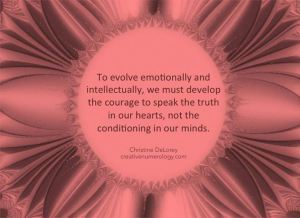
Courtesy: https://creativenumerology.wordpress.com/
Phew!
We always do well to investigate, ask, ponder, and reflect, every single day. And, of course, with as whole a heart as possible, to then take action.
Blessings to every one as another week begins.


October 7, 2015
Like clocks in a thunderstorm

Photo: David Campbell / gbctours.com
GLEANINGS FOUND HERE AND THERE:
Quiet minds cannot be perplexed or frightened, but go on in fortune or misfortune at their own private pace, like a clock during a thunderstorm.
~ Robert Louis Stevenson

Photo: David Campbell / gbctours.com
If we are in a negative state, we have to realize that we have allowed the lower forces of nature to gain dominance over the light of God in our own character, and we have to do something about it.
We cannot blame some outside power. We have to examine ourselves and perceive the dark forces that may have affected us.
It is possible for a person’s character to be dominated by prejudices or passion, by suspicion or hatred or, again, by self-righteousness.
~ Hooper Dunbar, Forces of Our Time

Photo: Saffron Moser
Look ye not upon the present, fix your gaze upon the times to come.
In the beginning, how small is the seed, yet in the end it is a mighty tree.
Look ye not upon the seed, look ye upon the tree, and its blossoms and its leaves and its fruits.
~ ‘Abdu’l-Bahá


October 4, 2015
Leaps ahead of thinking
I am often, in my writing, great leaps ahead of where I am in my thinking …
~ Madeleine L’Engle, A Circle of Quiet
This insight is one of the things I love most about creative process.The author shares it in a book that’s a longtime favorite of mine, the first of her Crosswicks Journal works.
I experienced a serendipitous example of what she describes while researching my current novel during a visit to Munich. A portrait of Eva Braun is a key element in the book’s story — a real portrait with a 1936 framer’s label on the back that says “Promenade Platz 7, Muenchen (Munich)”, together with an August date. I’d tried for some time to locate this address without success and figured that whatever building had been there on that day was long gone since the bombing damage from the war.
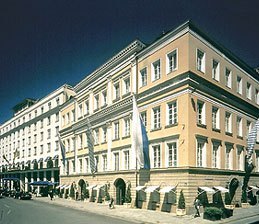
Image: http://www.bayerischerhof.de/
Spontaneously one afternoon, my ever-patient husband asked whether I’d like to go see the Hotel Bayerischer Hof, one of Munich’s historic hotels. It just so happened that a scene set there had “arrived” on the page that very week, not that I’d told him anything about that.
It was still a bit of a surprise to me, as these often are. It had also somehow “connected itself” with a scene in that framer’s shop whose address I couldn’t find.
When we reached the Bayerischer Hof, I looked up and saw a street sign that said: “Promenade Platz” And there, on a stone building directly across from the hotel, was a blue address sign with the number 7 — !
 But more, the setting outside it – a long, slender park between it and hotel – was exactly what I had “visualized” as I’d imagined the framer’s shop. So were the two sets of tram tracks on either side of it. Although I hadn’t yet known where Promenade Platz was, the scene that includes it had already taken shape on the page – and here it was right before me, just as my inner eye had seen it. Yet it wasn’t until that scene had been captured down that – without trying – I was led to discover exactly where that address is.
But more, the setting outside it – a long, slender park between it and hotel – was exactly what I had “visualized” as I’d imagined the framer’s shop. So were the two sets of tram tracks on either side of it. Although I hadn’t yet known where Promenade Platz was, the scene that includes it had already taken shape on the page – and here it was right before me, just as my inner eye had seen it. Yet it wasn’t until that scene had been captured down that – without trying – I was led to discover exactly where that address is.
I also learned that day during a tour of the hotel that its dining salon/lounge, where my writing’s process had just sketched a new scene – a huge, elegant space with a beautiful stained-glass dome overhead — is the only part of that massive hotel to survive bombing damage in the war.
These sorts of impromptu research discoveries leave me speechless. Indeed, in creative process, as L’Engle describes, mind lags far behind, like the slowest hiker on the climb.


September 30, 2015
The inner shapes the outer
 We cannot segregate the human heart from the environment outside us and say that once one of these is reformed everything will be improved.
We cannot segregate the human heart from the environment outside us and say that once one of these is reformed everything will be improved.
Man is organic with the world. His inner life molds the environment and is itself also deeply affected by it.
The one acts upon the other and every abiding change in the life of man is the result of these mutual reactions.
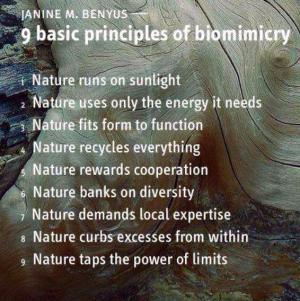
Courtesy: The Heirloom Gardener, John Forti / http://www.jforti.com/
~ Shoghi Effendi
If an active, actual peace is brought about, the human world will attain to the utmost serenity and composure; wolves will be transformed into lambs … and terrors into divine splendors in less than the twinkling of an eye.

Photo: David Campbell / http://www.GBCTours.com
~ ‘Abdu’l-Baha
If you want to change the fruits, you will first have to change the roots.
If you want to change the visible, you must first change the invisible.
~ T. Harv Eker


September 25, 2015
Lighting the way

Photo: https://www.etsy.com/shop/DKirkupDesigns
GLEANINGS FOUND HERE AND THERE
Love is a light that never dwelleth in a heart possessed by fear.
~ Bahá’u’lláh
Look ye not upon the present, fix your gaze upon the times to come.
In the beginning, how small is the seed, yet in the end it is a mighty tree.
Look ye not upon the seed, look ye upon the tree, and its blossoms and its leaves and its fruits.

Photo: https://www.etsy.com/shop/DKirkupDesigns
~ ‘Abdu’l-Bahá
Do everything with a mind that lets go.
Don’t accept praise or gain or anything else.
If you let go a little you will have a little peace; if you let go a lot you will have a lot of peace; if you let go completely you will have complete peace.
~ Ajahn Chah









